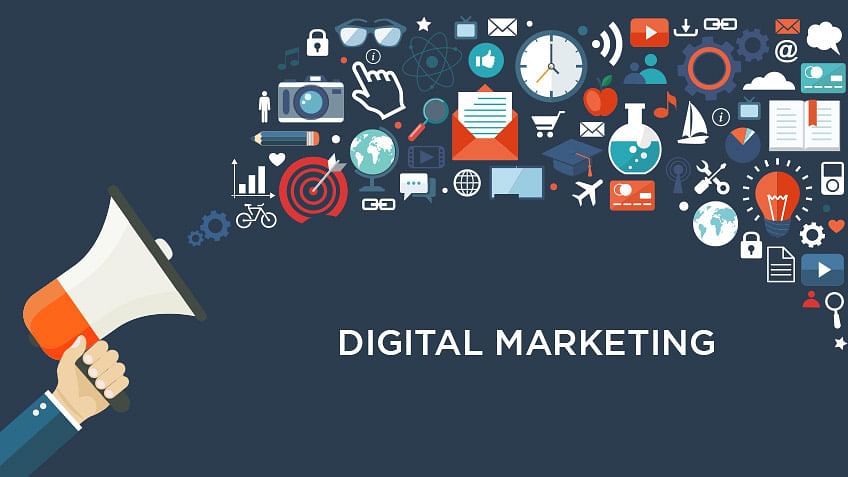The Power and Evolution of Digital Marketing in the Modern Age

In an era driven by rapid technological advancements and a digitally savvy population, traditional marketing approaches have taken a backseat to more dynamic and targeted digital strategies. Digital marketing, in its broadest sense, refers to the promotion of products or services using digital channels such as search engines, websites, social media platforms, email, and mobile apps. With the internet penetrating every facet of human interaction, digital marketing has become the cornerstone of modern business strategies, influencing how brands engage with consumers, measure success, and drive sales.
The Evolution of Digital Marketing
The journey of digital marketing began in the early 1990s when the internet was still in its infancy. Initially, websites served as digital brochures with static content. As search engines like Yahoo and later Google gained prominence, businesses began optimizing their websites for better visibility. This led to the birth of Search Engine Optimization (SEO), a key component of digital marketing that remains vital today.
The 2000s saw the rise of social media platforms such as Facebook, Twitter, and LinkedIn. These platforms provided businesses with new channels to connect directly with their target audiences, fostering two-way communication. Meanwhile, the advent of smartphones and mobile apps further revolutionized digital marketing by allowing brands to engage users on the go.
Today, digital marketing encompasses a vast array of strategies and technologies, including artificial intelligence, machine learning, big data analytics, and automation tools. These advancements allow marketers to create highly personalized experiences for consumers, significantly improving the efficiency and effectiveness of their campaigns.
Core Components of Digital Marketing
- Search Engine Optimization (SEO):
SEO involves optimizing a website to rank higher in search engine results pages (SERPs). This increases visibility and drives organic traffic. Effective SEO strategies focus on keyword research, high-quality content, backlink building, and technical optimization. - Content Marketing:
Content remains king in the digital world. Content marketing focuses on creating and distributing valuable, relevant, and consistent content to attract and retain a clearly defined audience. Blogs, videos, infographics, podcasts, and ebooks are all popular content formats used to inform, engage, and convert prospects. - Social Media Marketing:
This strategy utilizes platforms like Instagram, Facebook, LinkedIn, and Twitter to reach and engage users. Brands use social media for brand awareness, customer service, and promotional campaigns. Influencer marketing, which involves partnering with individuals who have a large following, is a growing subset of social media marketing. - Pay-Per-Click Advertising (PPC):
PPC is a model of internet marketing where advertisers pay a fee each time their ad is clicked. Google Ads and Bing Ads are the most popular PPC platforms. This method delivers quick results and is often used alongside SEO for maximum visibility. - Email Marketing:
Despite being one of the oldest forms of digital marketing, email marketing remains one of the most effective. It allows businesses to communicate directly with customers and leads through personalized messages, newsletters, and promotional offers. - Affiliate Marketing:
In this model, businesses reward affiliates (partners) for bringing in customers through the affiliate’s marketing efforts. It’s a performance-based model that helps companies expand their reach with minimal risk. - Analytics and Data Insights:
Digital marketing generates vast amounts of data. Tools like Google Analytics, HubSpot, and Facebook Insights help marketers track performance, understand user behavior, and refine strategies based on actionable insights.
Benefits of Digital Marketing
One of the most significant advantages of digital marketing is measurability. Unlike traditional marketing methods, where success can be hard to quantify, digital marketing provides precise data on impressions, clicks, conversions, and ROI. This allows businesses to adjust their strategies in real-time and ensure resources are allocated efficiently.
Another key benefit is targeted audience reach. Digital platforms offer advanced targeting options, allowing marketers to tailor their messages based on demographics, interests, browsing behavior, and even device usage. This level of personalization enhances user experience and drives higher engagement rates.
Digital marketing is also cost-effective. For startups and small businesses with limited budgets, digital channels offer a level playing field to compete with larger players. Social media campaigns, email newsletters, and SEO can deliver substantial returns with minimal investment.
Moreover, the global reach of digital marketing breaks down geographic barriers. A small online retailer in one country can now sell products to customers on the other side of the world, expanding market opportunities significantly.
Challenges in Digital Marketing
Despite its many advantages, digital marketing is not without its challenges. One major issue is increasing competition. As more businesses invest in digital strategies, standing out in a crowded online space requires creativity, consistency, and innovation.
Ad fatigue is another concern. Consumers are bombarded with digital ads daily, which can lead to them ignoring or blocking content. Marketers must constantly refresh their content and formats to keep users engaged.
Data privacy is also a growing concern. With regulations like GDPR and CCPA in place, businesses must handle user data responsibly and transparently. Failure to do so can result in legal consequences and loss of consumer trust.
Lastly, the fast pace of change in digital tools and platforms requires continuous learning. What works today might be obsolete tomorrow, forcing marketers to stay updated and adaptable.
The Future of Digital Marketing
Looking ahead, digital marketing is poised to become even more integrated with emerging technologies. Artificial Intelligence (AI) and machine learning are being used to predict customer behavior, automate tasks, and create highly personalized user experiences. Voice search, virtual reality (VR), and augmented reality (AR) are also gaining traction, offering new ways for brands to interact with audiences.
Additionally, sustainability and ethical marketing are becoming more important to consumers. Brands that align with social causes and demonstrate transparency in their digital marketing practices are likely to build stronger, more loyal relationships with their customers.
Shillong Teer Result
The growing online interest in the Shillong Teer Result has opened up a unique niche for digital marketers, especially in regional SEO and content targeting. With thousands of users searching daily for Teer lottery outcomes, websites and apps dedicated to real-time result updates are leveraging SEO strategies, push notifications, and mobile-friendly design to capture and retain traffic. By optimizing content with localized keywords and integrating social media sharing, marketers can build authority and monetize traffic through ads, affiliate links, or premium memberships, showcasing how even traditional games can benefit from modern digital marketing approaches.
Khanapara Teer Result
Similarly, the Khanapara Teer Result has become a high-traffic keyword that digital marketers are capitalizing on through content marketing, video updates, and engagement-driven platforms like Telegram and WhatsApp groups. By providing quick and reliable updates, these platforms gain user trust and repeat visits, which can be harnessed for email list building or ad revenue. This highlights the power of niche-specific digital marketing, where understanding user intent and delivering consistent, value-driven content can lead to strong community building and sustainable online growth.
Conclusion
Digital marketing is no longer just an optional strategy—it is essential for business growth in the digital age. From enhancing visibility and engagement to driving conversions and loyalty, digital marketing offers unmatched opportunities for brands willing to invest in the right tools and tactics. As the landscape continues to evolve, staying ahead of trends and focusing on delivering value to customers will be key to long-term success.

Source: The Power and Evolution of Digital Marketing in the Modern Age



